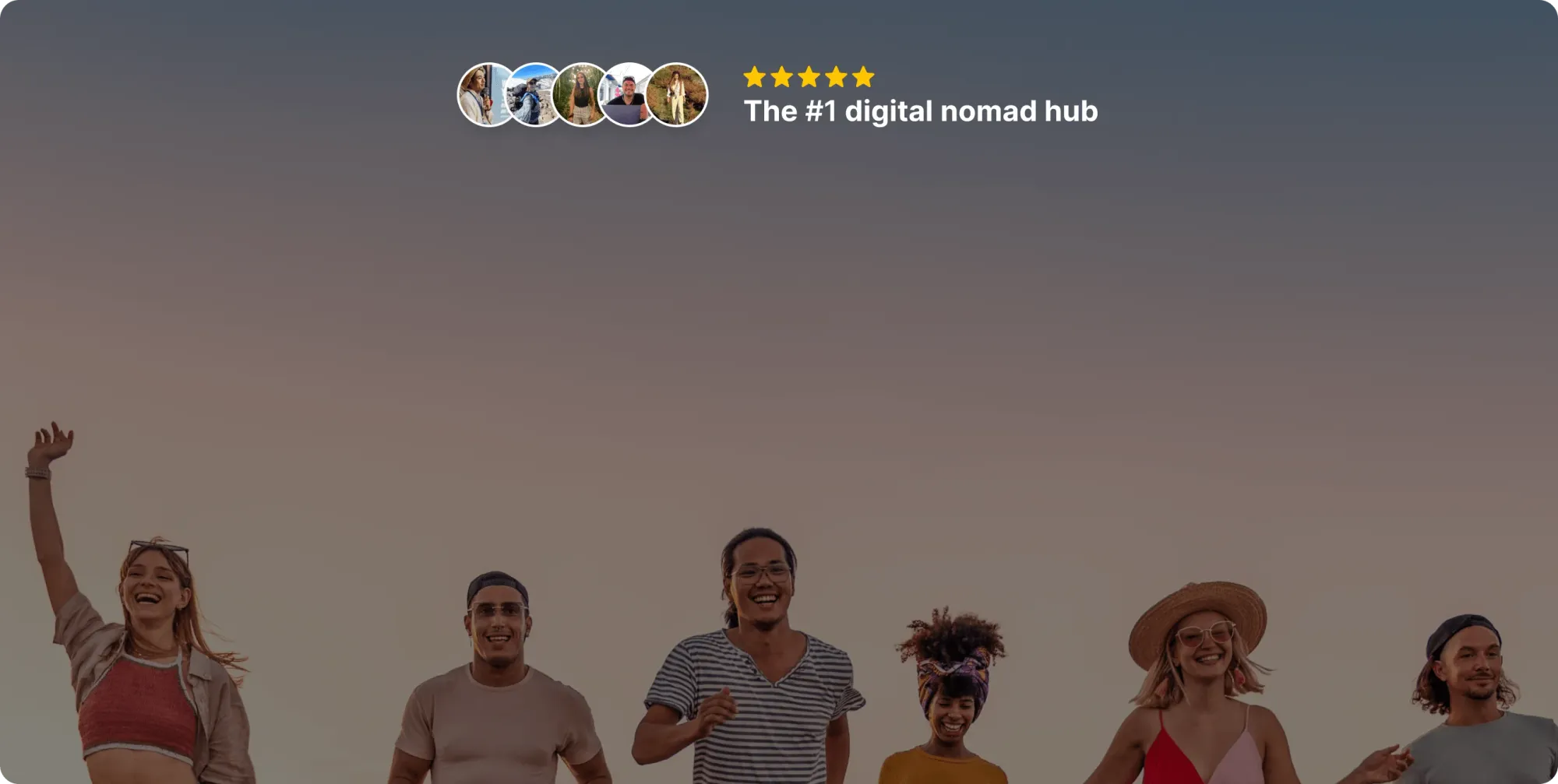How to Get Hired Remotely (According to Experts)
Get hired remotely with this expert advice. Get essential tips on remote job applications, standout resumes, and virtual interviews to land your dream role.


Remote work has opened up a world of possibilities, allowing us to apply for roles that fit our skills and interests, no matter where the company is located.
If you're new to the remote job hunt, though, you might feel a bit overwhelmed.
We've teamed up with a top expert to ensure you have the best strategies at your disposal. We reached out to Susan Snipes, Head of People at RemotePeople, a leading publication focused on Human Resources and Remote Work. Her insights will hopefully provide you with invaluable remote work tips to help you land your remote job successfully.
1. Prepare for Your Remote Job Application
Preparing your remote job application is your first step toward success.
By understanding your strengths and customizing your approach, you position yourself to stand out from the crowd.
Understand what your strengths are and which remote roles to apply for
Start by identifying your core strengths. Knowing what you excel at helps you target roles that truly fit your skills and passions.
For instance, if you’re excellent at project management and enjoy coordinating teams, consider applying for remote project manager positions.
That's what Susan Snipes emphasizes here:
"When hiring remote workers, employers look for prior experience working remotely. They want to know how candidates stay organized and hold themselves accountable while working remotely."
Make your resume truly stand out
Your resume is your first impression, so make it count! Here’s how to ensure you shine:
- Highlight remote experience. Showcase any past remote work, freelance projects, or virtual collaborations. For example, if you freelanced on the side for friends or a local business, make sure to mention it.
- Showcase relevant skills. Include skills crucial for remote work, such as time management, self-discipline, and proficiency with remote communication tools like Teams or Zoom, including asynchronous tools like Loomly.
- Use a clean layout. A well-organized, easy-to-read resume can make a big difference. Use bullet points and clear headings to enhance readability.
That's what Susan Snipes suggests focusing on here:
"Jobseekers should emphasize any prior remote work experience on their resumes. Including traits like being self-directed, accountable, and collaborative can set you apart."
Tailor your remote job application to your dream role
Generic applications rarely stand out, we already know that. Customize each application to match the job description:
- Use keywords. Incorporate keywords from the job listing to pass through Applicant Tracking Systems (ATS). For example, if the job requires "data analysis", ensure this phrase appears regularly in your resume.
- Align your skills. Match your skills and experiences with the specific requirements of the role. If the job emphasizes "team collaboration", make sure to highlight your experience working in virtual teams.
- Personalize your Cover Letter. Address how your background makes you a perfect fit for the position. Mention specific projects or achievements that align with the job's responsibilities.
Think about why you would be suitable for that role
Reflecting on why you’re a great fit for the role not only strengthens your application but also prepares you for your remote interview.
Ask yourself: how do my background, skills, and remote work experience make me an ideal candidate?
If the role requires strong communication skills, you might want, for instance, to highlight instances where you successfully led virtual meetings or managed remote teams.
Think about why you want a remote career
Understanding your true motivation is your ticket to getting hired remotely. What are the benefits of remote work you appreciate? Are you looking for a better work-life balance, avoiding the commute, or seeking flexibility?
That's what Susan suggests to focus on:
"Think about if being physically distant from colleagues is right for you. Do you thrive on personal interaction or prefer the perks of a home office?"
Reflecting on these questions will help you understand if remote work aligns with your personal and professional goals.
Practice top remote job questions
Preparation is absolutely critical, we can't stress this enough. Anticipate and practice common remote job interview questions like:
- How do you stay organized while working remotely?
- Can you describe your home office setup? Do you have a quiet, dedicated workspace?
- What challenges did you face working remotely and how did you handle them?
- How do you manage your workload and stay organized when working remotely?
- How do you communicate and collaborate effectively with a distributed team?
- How do you maintain a work-life balance when working remotely?
- What tools and technologies are you familiar with for remote work?
- How do you handle time management and prioritize tasks when working independently?
- How would you build relationships with coworkers in a remote environment?
- How do you stay motivated without in-person supervision?
- How do you troubleshoot technical issues on your own?
- What is your communication style when working remotely?
2. Start Your Remote Job Search
With your application ready, it's finally time to dive into your job search. Here are some strategies to kickstart your hunt for the perfect remote role.
Use a specialized remote job board
Specialized remote job boards can streamline your search by focusing exclusively on remote opportunities. Some of our favorites include:
Using these platforms increases your chances of finding quality remote positions that match your skills and interests.
Leverage LinkedIn and proactively reach out to connections
LinkedIn is a powerful tool for networking and finding remote jobs. Here’s how to make the most of it:
- Update your profile: Ensure your LinkedIn profile highlights your remote work skills and experience.
- Connect with industry professionals: Reach out to connections who work at remote companies you’re interested in.
- Send personalized messages: When reaching out, personalize your messages to build genuine connections.
Susan Snipes, in fact, confirms that:
"Networking is the most powerful way to land a remote job. Proactively reaching out to connections can shorten your wait time and bring you closer to your dream role."
Apply for entry-level remote jobs if you don’t have experience yet
Applying for a remote job with no experience can be daunting, we get that. However, you can still aim to apply for entry-level remote jobs to gain initial experience.
Look always for roles that offer training and growth opportunities like, for instance, a remote customer support position, which can help you develop communication skills and familiarize yourself with remote work tools, or a data entry job, which will help you get used to data and analytics which are essential in many business fields.
Highlight your transferrable skills if you don’t have all the qualifications
Don’t let a lack of specific qualifications hold you back. Focus on transferrable skills that are valuable in any remote role, such as:
- Communication. It's essential for collaborating with remote teams.
- Problem-Solving: Allows you to tackle challenges independently.
- Adaptability: Allows you to adjust to different tools and workflows.
If you have experience managing projects in a non-remote setting, for example, make sure to emphasize how those skills translate to a remote environment.
3. Ace Your Remote Job Interview
The interview process is your chance to showcase why you’re the perfect fit for the remote role. Here’s what to do to smash it:
Don't be late!
This tip comes directly from an advice that Susan shared with us:
"Candidates should show up on time for their interviews and demonstrate dependability. Confusion over meeting technology or time zones can make a hiring manager question your reliability."
Make sure to be in a quiet environment (avoid noisy cafés for instance) and ensure you have a stable internet connection (here are the options you have), and you will be fine!
Be confident, you can do it 💪
Confidence can make a significant difference in your interview performance. Believe in your abilities and present yourself positively.
For example, maintain good eye contact through the camera and speak clearly about your remote work experiences. Remember, remote employers are looking for self-assured individuals who can manage their responsibilities effectively.
4. Follow Up (Politely) After the Interview
Following up after an interview shows your continued interest and professionalism, so don't miss out on this chance. It can also keep you top of mind for the hiring manager.
Use this follow-up email template for remote jobs
Here’s a simple template you can use and that you can tweak as you please:
Subject: Thank You for the [Position] Interview
Hi [Interviewer’s Name],
Thank you so much for taking the time to speak with me about the [Position] at [Company]. I enjoyed learning more about the team and the exciting projects you’re working on.
I’m particularly enthusiastic about [specific aspect of the role or company] and how my experience in [your relevant experience] aligns with your needs. I’m confident that my skills in [key skills] would make a valuable contribution to your team.
Please let me know if there’s any additional information you need from me and I will be happy to provide it. I look forward to the possibility of working together!
Best regards,
[Your Name]
5. Accept Your Dream Remote Job Offer
Congratulations! You’ve landed your dream remote job. Now it’s time to finalize everything to ensure it’s the right fit for you.
Negotiate any terms you don't feel confident with
Not enough holidays and you feel it's essential for you? You might want to negotiate a lower salary for it.
Do you have a senior role and you can afford to not work on Friday? Ask it! We have seen many people negotiating a 4-day week in exchange for a pay cut.
Understand your rights and don't be afraid to negotiate your terms.
Feel Free to reject an application if you don’t feel 100% sure
It’s important to feel confident in your decision.
If something doesn’t feel right or the role doesn’t align with your goals, trust always your gut. It’s okay to politely decline the offer.
For example, if the company’s values don’t match yours or the role lacks the growth opportunities you seek, respectfully declining ensures you find a position that truly fits your needs.
Finalize the paperwork
All good from your side and you are super excited about the role? Awesome! Wait patiently for the hiring manager to send you all the instructions and anything you need to sign to get started in your new role.
Make sure you read your contract and ask any questions about any clause that you are not clear about. If anything meets your expectations, sign all the papers required and you will be good to go.
Ready to Work Remotely?

Join our global
digital nomad community
Join us for free
Freaking Nomads is supported by you. Clicking through our links may earn us a small affiliate commission, and that's what allows us to keep producing free, helpful content. Learn more
Read Next


espresso by Kensington Magnetic Privacy Screen Review


bunq Review: The Smartest Bank for Digital Nomads?


